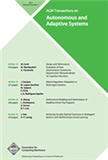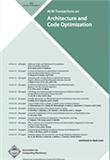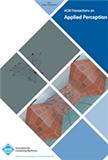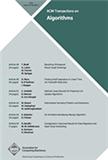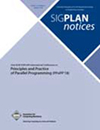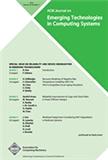WEAR
SCI/SCIE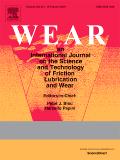
- 雜志名稱:穿戴
- 簡稱:WEAR
- 期刊ISSN:0043-1648
- 大類研究方向:工程技術
- 影響因子:2.95
- 數據庫類型:SCI/SCIE
- 是否OA:No
- 出版地:SWITZERLAND
- 年文章數:440
- 小類研究方向:工程技術-工程:機械
- 審稿速度:約8.0個月
- 平均錄用比例:60%
官方網站:http://www.elsevier.com/wps/find/journaldescription.cws_home/504107/description#description
投稿網址:http://ees.elsevier.com/wea/
WEAR
英文簡介Wear journal is dedicated to the advancement of basic and applied knowledge concerning the nature of wear of materials. Broadly, topics of interest range from development of fundamental understanding of the mechanisms of wear to innovative solutions to practical engineering problems.Submissions are invited on such subjects as:(a)Wear modelling and validation. This includes modelling of fundamental mechanisms as well as the modelling of tribosystems. Approaches may employ contact mechanics, frictional considerations and lubrication concepts in the development of the model, and will always include physical validation of the model.(b)The development and use of new wear testing methods and standards. This includes the rationale behind their development (including a critique of existing test methodologies where appropriate).(c)New wear diagnostic tools. The need for these tools and examples of their use in either basic research or engineering should be illustrated.(d)The development of wear-resistant materials, coatings, or surface treatments. Such papers should include, for example, benchmarking against materials currently employed in targeted engineering applications, or presenting a basic hypothesis underlying the work that can be validated as an advance over the current state-of-the-art. The criteria used to select the test methods employed (and the conditions under which those tests were conducted) must be robustly justified with regard to the targeted engineering applications. The proposed mechanisms of wear must be discussed in the context of data and observations that support those conclusions.(e)Relationships between the composition, structure, properties, and processing of materials and their wear behavior. Such submissions should include the basic rationale for the work, its foundation in prior knowledge, and how the current approach is implemented to explore these relationships. The criteria used to select the tests or analytical methods employed shall be explained with respect to the purpose of the research, be it fundamental or applied.(f)The role of lubricants or other interfacial species in the wear of materials. Such submissions will focus on the mechanisms of wear in the presence of well-characterized interfacial environments.The Abstracts of all submissions, whether a full paper or a shorter communication, should summarize the purpose and approach to the given problem, indicate the materials under investigation, and present the primary conclusions in a brief and concise manner. Overt commercialism or product promotion is unacceptable. Submissions to Wear will be peer-reviewed to assess their archival quality, clarity of communication, and the novelty of their contributions to the science and technology of wear.
WEAR
中文簡介《磨損雜志》致力于提高有關材料磨損性質的基礎和應用知識。從廣義上講,感興趣的主題包括從對磨損機理的基本理解發展到對實際工程問題的創新解決方案。邀請提交的主題包括:(a)磨損建模和驗證。這包括基本機制的建模以及摩擦系統的建模。在模型開發過程中,方法可能采用接觸力學、摩擦考慮和潤滑概念,并且始終包括模型的物理驗證。(b)制定和使用新的磨損試驗方法和標準。這包括其開發背后的基本原理(包括對現有測試方法的批評,如果合適的話)。(c)新的磨損診斷工具。應說明這些工具的需求以及它們在基礎研究或工程中的應用實例。(d)耐磨材料、涂層或表面處理的發展。例如,此類論文應包括針對目標工程應用中當前使用的材料進行基準測試,或提出一個基本假設,該假設可作為當前最先進技術的進步進行驗證。選擇所采用的試驗方法(以及進行這些試驗的條件)所采用的標準必須在目標工程應用方面具有充分的合理性。建議的磨損機制必須在支持這些結論的數據和觀察的背景下進行討論。(e)材料的成分、結構、性能和加工與其磨損性能之間的關系。這樣的提交應該包括工作的基本原理,它在先前知識中的基礎,以及如何實施當前的方法來探索這些關系。選擇所用試驗或分析方法的標準應解釋為研究的目的,無論是基本的還是應用的。(f)潤滑劑或其他界面物質在材料磨損中的作用。這些提交的報告將集中在界面環境特征良好的情況下的磨損機制。所有提交材料的摘要,無論是一篇完整的論文還是簡短的交流,都應該總結出針對給定問題的目的和方法,指出正在調查的材料,并以簡潔明了的方式提出初步結論。公開的商業化或產品推廣是不可接受的。將對提交的服裝進行同行評審,以評估其檔案質量、溝通的清晰度以及對服裝科學和技術貢獻的新穎性。
WEAR
中科院分區| 大類學科 | 分區 | 小類學科 | 分區 | Top期刊 | 綜述期刊 |
| 工程技術 | 2區 | ENGINEERING, MECHANICAL 工程:機械 MATERIALS SCIENCE, MULTIDISCIPLINARY 材料科學:綜合 | 2區 2區 | 是 | 否 |
WEAR
JCR分區| JCR分區等級 | JCR所屬學科 | 分區 | 影響因子 |
| Q1 | ENGINEERING, MECHANICAL | Q1 | 4.695 |
| MATERIALS SCIENCE, MULTIDISCIPLINARY | Q2 |
WEAR
中科院JCR分區歷年趨勢圖WEAR
影響因子精選同類領域期刊,熱門推薦輕松get~
-
- ACM Transactions on Autonomous and Adaptive Systems
- 期刊ISSN:1556-4665
- 大類研究方向:工程技術
- 影響因子:
- 數據庫類型:SCIE
- 咨詢投稿
-
- ACM Transactions on Architecture and Code Optimization
- 期刊ISSN:1544-3566
- 大類研究方向:工程技術
- 影響因子:1.444
- 數據庫類型:SCIE
- 咨詢投稿
-
- ACM Transactions on Applied Perception
- 期刊ISSN:1544-3558
- 大類研究方向:工程技術
- 影響因子:
- 數據庫類型:SCIE
- 咨詢投稿
-
- ACM Transactions on Algorithms
- 期刊ISSN:1549-6325
- 大類研究方向:工程技術
- 影響因子:
- 數據庫類型:SCIE
- 咨詢投稿
-
- ACM SIGPLAN NOTICES
- 期刊ISSN:0362-1340
- 大類研究方向:工程技術
- 影響因子:
- 數據庫類型:無
- 咨詢投稿
-
- ACM Journal on Emerging Technologies in Computing Systems
- 期刊ISSN:1550-4832
- 大類研究方向:工程技術
- 影響因子:2.013
- 數據庫類型:SCIE
- 咨詢投稿
精選常見問題,答疑解惑輕松get~
- 三篇ssci論文怎么同時投出去
- 中文核心和sci哪個影響力更大
- 中科院一區和JCR一區期刊占比區別
- 發ssci如何快速找合適的期刊
- 資源保護方面論文投sci指導
- 外貿行業論文發ssci周期長嗎
- 國外的sci投到錄用一般多久
- ssci期刊國內認可度
- 核能應用論文翻譯英文發sci容易的方法
- 人口老齡化研究論文符合ssci領域嗎
- sci開源和不開源分別是什么意思?有什么影響?
- ssci發表是高水平學術論文嗎
- 生態修復主題英文論文會收錄哪些數據庫
- 哲學專業論文發英文期刊
- 中科院sci四個區的劃分
- ssci期刊和sci期刊的區別
- ESCI和SCIE要分清
- ssci送審論文多久出結果
- ssci論文二作有用嗎
- 水土保持類英文期刊好選嗎
- ssci期刊論文一定會檢索嗎
 投稿咨詢
投稿咨詢

